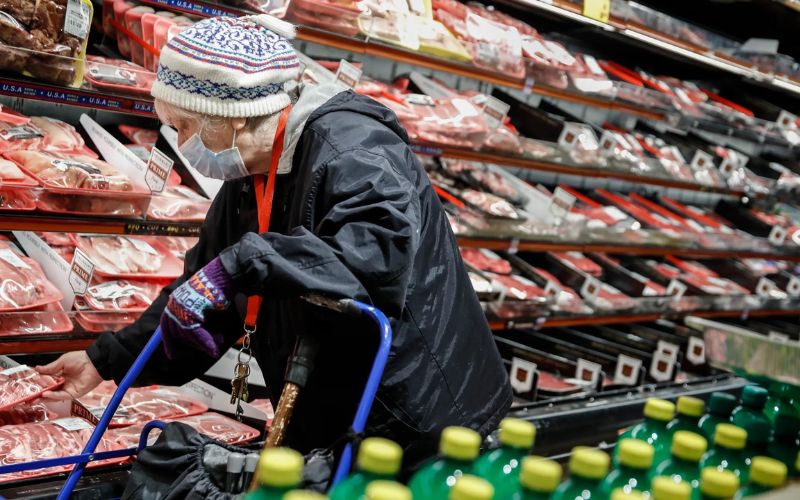In today’s fast-paced world, the convenience of having access to a nearby supermarket that stays open late or operates 24/7 has become increasingly important. Whether you need a late-night snack, essential groceries, or just want to avoid the daytime crowds, knowing the operating hours of your local supermarket can significantly impact your daily routine. This article delves into the varying closing times of supermarkets, the factors influencing these hours, and the benefits and challenges associated with late-night shopping.
Understanding Supermarket Hours
Supermarket hours can vary greatly depending on a variety of factors, including location, company policies, and local regulations. In urban areas, it’s common to find supermarkets that stay open until late at night, or even operate 24/7. However, in rural or suburban regions, stores might close earlier due to lower demand.
- Urban Supermarkets: In cities, the hustle and bustle of daily life means that there is a constant flow of customers at all hours. To accommodate this demand, many urban supermarkets extend their hours, often staying open until midnight or later. Some even operate around the clock, providing convenience for late-night workers, students, and anyone who prefers to shop outside of traditional hours.
- Suburban and Rural Supermarkets: In contrast, supermarkets in less densely populated areas tend to have shorter operating hours. These stores typically close earlier in the evening, around 8 or 9 PM, as the customer base is smaller and the demand for late-night shopping is lower.
- Holiday and Seasonal Hours: Supermarkets often adjust their hours during holidays and special seasons. For instance, many stores extend their hours during the Christmas season to accommodate holiday shoppers. Conversely, they may close earlier on major holidays like Thanksgiving or New Year’s Day.
Factors Influencing Supermarket Operating Hours
Several factors determine how late a supermarket stays open. These include:
- Customer Demand: The primary driver of supermarket hours is customer demand. In areas with a high concentration of night-shift workers, students, or night owls, supermarkets are more likely to stay open late or operate 24/7.
- Local Regulations: Local laws and regulations can influence store hours. In some cities, there are ordinances that restrict the hours during which businesses can operate. Supermarkets must comply with these regulations, which can limit their ability to stay open late.
- Competition: The presence of competitors can also impact operating hours. If nearby stores are open late, a supermarket may extend its hours to remain competitive and attract customers who might otherwise shop elsewhere.
- Operational Costs: The cost of keeping a supermarket open, including labor, utilities, and security, can be a significant factor. Stores must weigh these costs against the potential revenue from extended hours to determine if staying open late is financially viable.
- Corporate Policies: The policies of the supermarket chain can also play a role. Some chains have standardized hours across all locations, while others allow individual stores to set their hours based on local demand and conditions.
Benefits of Late-Night Shopping
Shopping late at night offers several advantages:
- Convenience: The most obvious benefit is convenience. For people with busy schedules, late-night shopping allows them to buy groceries and other essentials at a time that suits them best.
- Less Crowded: Late-night shopping typically means fewer crowds, shorter lines, and a more relaxed shopping experience. This can be particularly appealing to those who prefer a quieter environment.
- Immediate Needs: Emergencies can happen at any time. Having access to a supermarket that stays open late can be crucial in situations where you need to buy medicine, baby formula, or other urgent items.
- Flexible Work Schedules: Many people work non-traditional hours, including night shifts. Late-night supermarket hours accommodate these schedules, ensuring that everyone has the opportunity to shop when it is most convenient for them.
Challenges of Late-Night Supermarket Hours
While there are many benefits to supermarkets staying open late, there are also some challenges:
- Safety and Security: Operating late at night can pose safety and security risks for both employees and customers. Supermarkets need to invest in security measures to ensure a safe shopping environment.
- Operational Costs: As mentioned earlier, the costs of keeping a store open late can be significant. This includes not only staffing but also utilities and maintenance. Stores must balance these costs with the potential revenue from late-night sales.
- Staffing Issues: Finding employees willing to work late-night shifts can be challenging. Employers must often offer incentives or higher pay rates to attract staff for these hours.
- Product Availability: Late-night shoppers may find that certain products are out of stock or not freshly restocked. Supermarkets must manage their inventory and restocking schedules to ensure a good shopping experience at all hours.
Examples of Supermarkets with Extended Hours
To understand how late supermarkets stay open, let’s look at some examples from various regions and chains:
- Walmart: In the United States, many Walmart locations operate 24/7, providing round-the-clock access to groceries and other products. This is particularly common in larger cities and urban areas.
- Tesco: In the UK, Tesco has a mix of store formats, including Tesco Extra, which often operate 24 hours a day, and smaller Tesco Express stores, which typically have shorter hours.
- Coles and Woolworths: In Australia, major chains like Coles and Woolworths often stay open until late, usually until 10 PM or midnight, especially in metropolitan areas.
- Carrefour: In Europe, Carrefour hypermarkets can have extended hours, with some locations operating 24/7. This is particularly common in larger cities and shopping centers.
- 7-Eleven: While not a traditional supermarket, 7-Eleven convenience stores are known for their 24/7 operations, providing essential items at any hour. These stores are particularly prevalent in urban areas around the world.
The Future of Supermarket Hours
The future of supermarket operating hours is likely to be influenced by several trends and technological advancements:
- E-commerce and Delivery Services: The rise of online grocery shopping and delivery services has changed the way people buy groceries. Many supermarkets now offer 24/7 online shopping, with delivery windows extending late into the night. This trend may reduce the need for physical stores to stay open late.
- Automation and Self-Service: Advances in automation and self-service technology could extend supermarket hours without the need for a full staff. Self-checkout stations, automated restocking systems, and even cashier-less stores are becoming more common, allowing supermarkets to stay open longer with fewer employees.
- Changing Consumer Habits: As consumer habits continue to evolve, supermarkets will need to adapt their hours to meet changing demands. For instance, the increase in remote work and flexible schedules may lead to a greater demand for late-night shopping options.
- Sustainability Concerns: There is a growing emphasis on sustainability and reducing energy consumption. Supermarkets may need to balance the convenience of extended hours with the environmental impact of keeping stores open late.
Conclusion
The question of “how late is the closest supermarket open” does not have a one-size-fits-all answer. It depends on a multitude of factors, including location, customer demand, local regulations, and corporate policies. While urban areas are more likely to have supermarkets with extended or 24/7 hours, suburban and rural areas typically have shorter operating times.
Late-night shopping offers numerous benefits, such as convenience, less crowded stores, and the ability to meet immediate needs. However, it also comes with challenges, including safety concerns, higher operational costs, and staffing issues.
As consumer habits and technological advancements continue to evolve, the landscape of supermarket operating hours is likely to change. The rise of e-commerce and delivery services, coupled with automation and changing work schedules, will shape the future of how and when we shop for groceries. Ultimately, the convenience of having a supermarket open late or around the clock remains a valuable aspect of modern life, catering to the diverse needs of today’s consumers.





